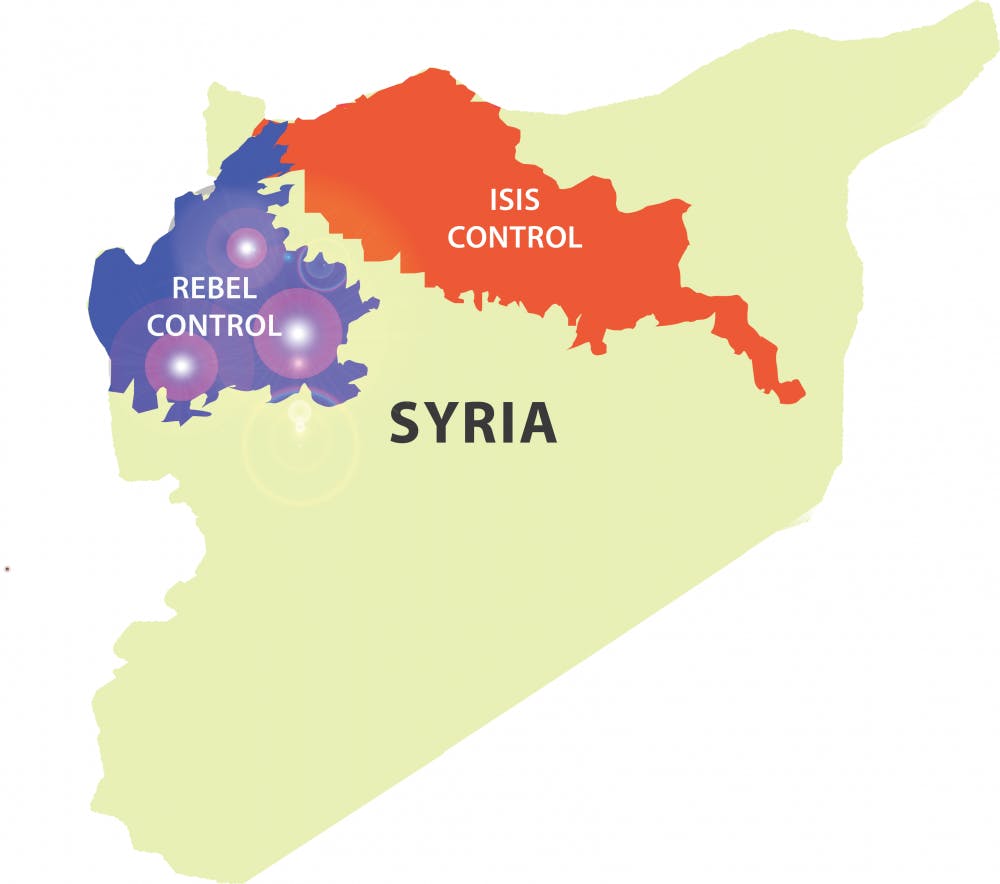On the international stage, Russian President Vladimir Putin resembles the school gossip on the playground: He can’t help but get into other people’s business.
Syria, a country ravaged by civil war since 2011, now has another presence impinging on it as Russia launched a series of airstrikes within the country Sept. 30.
Russia claims the airstrikes are being aimed against the Islamic State of Iraq and Syria, a radical terrorist group that is quickly gaining a foothold in the Middle East. However, a coalition of Western nations and allies, including the United States, Britain, France, Turkey, Germany, Qatar and Saudi Arabia, claim Russia is bombing rebel groups who oppose the totalitarian reign of Syrian President Bashar al-Assad.
How should the United States respond to Russian airstrikes in Syria? Should the U.S. respond to these airstrikes at all?
The Editorial Board argues for careful consideration of all possible options before engaging Russia in the issue.
With many citizens feeling a sense of fatigue due to the constant U.S. involvement in the Middle East since the Sept. 11, 2001, attacks, a militarized response in Syria might not be the most appropriate action for the U.S. to take.
Diplomatically, however, choices are limited. Russia isn’t the only nation that claims to be fighting ISIS. It is also joined by Iran and Iraq.
Together, the three nations argue they are combating the forces of ISIS, but they might only be using their military strength to protect their own interests.
As the polarized response to President Obama’s recent deal with Iran about lowering the country’s stockpiles of nuclear weapons illustrates, reaching a deal with Russia, Iraq and Iran could take a long time and may not produce satisfactory results.
Regardless of the U.S. response to Russia’s latest move, it should be wary of Putin’s motivations for going into Syria.
Russia, after all, officially supports al-Assad’s administration, which has been routinely criticized by international leaders for its various human rights abuses. In 2013, for example, al-Assad’s military forces used chemical weapons against its own citizens in just one of a series of controversial actions taken during the civil war in the country.
According to the Guardian, the Russian defense ministry claims it sees “no distinction between different rebel groups fighting Assad,” meaning the forces they are bombing may not be ISIS targets. Russia could be content with supporting al-Assad’s terrifying crackdown on those who disagree with him.
Instead of investing precious time and energy into making a calculated move against Russia on the geopolitical chessboard, the U.S. could focus on humanitarian efforts to aid refugees escaping from Syria. Or it could spearhead an international effort to determine what the most effective response to the situation in Syria could be.
The U.S. should tread with caution, carefully analyze the motives and intentions behind Putin’s political mask and work with its allies to determine an effective cause of action.
The whole world is watching to see what steps the U.S. will or will not take in regards to the conflict, regardless of how people at home feel about the issue.




